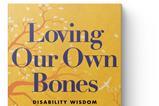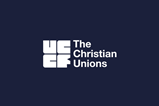UCCF has released the long-awaited results of an investigation into alleged breaches of employment law and discrimination. With the news coming in the wake of the resignations of nearly half the trustee board, Tanya Marlow says many important questions still remain unanswered

For most of this year, the suspension of two directors of UCCF, Richard Cunningham and Tim Rudge, has been surrounded in mystery, but now the organisation, which runs Christian Unions, has broken its silence.
The Universities and Colleges Christian Fellowship (UCCF) is perhaps the most influential organisation you’ve never heard of: it supports and trains university Christian Unions on how to evangelise their fellow students. Every Christian student will probably have been influenced, at least tangentially, by UCCF, and many church leaders and missionaries begin as a UCCF CU Staff worker (CUSW). So, the conduct of its leadership has far-reaching consequences.
At the beginning of the year, UCCF explained there were “allegations” but reassured us that they weren’t about sexual abuse. As part of their internal review, UCCF appointed employment law barrister Hilary Winstone as an independent investigator. The complainants wouldn’t get to see what was written about them, only the board and directors, and the public wouldn’t be told anything.
Then – there was silence. Until now.
Three silences
Before we get into the press release, there are three significant silences worth noting. The first is the silence of the barrister’s voice – rather than directly quoting her summary from the report (with confidential information redacted), we have the Trust Board’s take on it instead.
Except it’s not the Trust Board, exactly. The investigator’s report, which trawled through evidence given by over 50 contributors (complainants and witnesses) was finished back in June 2023 and given to the board and Richard and Tim (and any legal representation they may have had individually) – but they didn’t announce their response until October. That’s four months of silence. The press release itself gives no reason why it should take the board so long to announce the findings and response, which includes the reinstatement of the two directors, but perhaps there is a clue in the events of the last three weeks.
Five out of the eleven Trustees for UCCF resigned, just prior to the press release. With one or two, you may think that it was a coincidence, but almost half the board resigning in rapid succession signals something is not quite right.
The third silence is from the remaining Trust board, the six names who signed the statement on UCCF’s website. In their announcement from “the Trust Board” they didn’t mention that they’d lost half their members.
Four issues
UCCF said a group of people made allegations through a solicitor about employment law and misconduct. The first issue is about employment rights. With no explanation about the laws at stake, the Trust Board mentioned that Staff Workers were expected to stay for three to five years only. Indeed, throughout the past 20 years, every past Staff Worker I’ve asked believed they were legally obliged to leave then. Director Peter Dray wrote to me and explained that since he took over the reins from Richard and Tim, he is keen for staff to now be fully aware of their employment rights:
“Once a Staff Worker has reached two years’ service, the decision on whether and when they want to leave employment with UCCF sits with the employee alone. Of course, there are some exceptions to this (e.g. redundancy, a work visa expires or there is serious misconduct) but these exceptions are rare and situation-specific…
“Employment contracts offered to Staff Workers currently state a term of four years, but the rights set out above take effect automatically after two years. There is no need for staff to apply to continue in their role or take any action to stay in post… We are committed to making these rights clear to our staff.” (my emphasis)
Peter was unable to comment on the contracts and arrangements prior to this year. The Trust Board statement plays down the significance of the potential breach of employment law – after all, it’s a snooze fest compared to some of the horrors we’ve heard from church abuse scandals. But depending on their contract, it paves the way for any past Staff Worker to raise a case for unfair dismissal.
A second issue is discrimination against women “in its employment and ministry practices.” It’s a little confusing. Despite saying this allegation was not upheld, the barrister congratulated them on “significant improvement in recent years”, hinting at past failings, at the very least in supporting women through pregnancy and maternity leave. Additionally, one of her recommendations was to “pursue best practice in issues relating to equality”, which suggests they have work to do in this area. The board doesn’t mention any other allegation that wasn’t upheld.
The third issue gives the barest of hints at problematic behaviour from senior staff. It looks like the situation is this: if you have the right to stay in post, but you’re expected to leave, what happens if you try to exercise your rights? The legal terms ‘misconduct’ and ‘upheld allegation’ are conspicuously absent here; instead we’re told in the briefest of ways: “The investigation found a small number of instances where the termination of CUSW’s contracts had been badly handled and conducted in ways that caused them considerable upset and were potentially unlawful.”
The silence of the complainants’ testimony hangs heavily over this. I pause to picture what that might mean. The language is passive, “had been badly handled”, with no person mentioned at fault. And what does “badly handled” look like in practice? A crass email? A thoughtless word? A sustained campaign of bullying and intimidation? Who knows! Without the detail of the complainants’ experiences, we have no idea how serious this was. We know only their feelings, as it caused “considerable upset”. And what of the ramifications? It potentially left the staff affected financially vulnerable. It’s also difficult to find a new job with references from bosses who didn’t want you to stay.
The fourth issue was that staff “felt unable to speak out about their concerns.” Again, the focus is on staff feelings rather than leadership actions. I wondered how the complainants themselves would have expressed it.
Recommendations
In response to all this, the rump Trust Board and Directors have offered a blanket apology to any employee affected for the hurt caused. Who caused the hurt? No people are named, no harmful actions are specified. It is the vaguest apology for the vaguest of issues, an apology for standards slipping, the sort that you hear when a train has been two hours late. It’s followed by a promise to keep their policies and practices “lawful” and improve their culture.
The silence of the complainants’ testimony hangs heavily over this
They will follow four specific recommendations by the barrister, including management training, appointing an HR director (why did they not already have one?), making sure employees know their employment rights (as Peter Dray has begun doing) and pursuing equality.
There is no mention of reparation for staff who were wronged.
Lessons
What can other organisations learn from this? There’s a lesson about process and transparency. I previously asked the question, “Can Christian organisations be trusted to mark their own homework?” – and with half the board resigning prior to the announcement of the reinstatement of the directors, the answer may still be ‘no’.
Christian organisations need to learn that the rules really do apply to them. Keeping the law should be a bare minimum, and we’ve seen time and again from safeguarding investigations that disregarding laws can open the door to abuse.
The Trust Board’s main focus in the press release was on their legal obligations, so it’s also worth reminding ourselves that good Christian leadership surely means exceeding the legal standards, not falling below them.
With Mike Pilavachi’s coercive tactics and toxic work environment at Soul Survivor, Steve Timmis’ cult-like ‘abusive leadership’ at Crowded House Church, and Mark Driscoll’s misogynistic practices, the scandal was not primarily about law-breaking but their damaging form of leadership which has devastating lifelong ramifications for those affected. These days, the scandals are so heart-breaking that we’re tempted just to feel relief at anything that isn’t sexual abuse – but that’s a depressingly low bar and we need to raise it.
Finally, repentance is nothing without reparation. Think of Zaccheus, who vowed to repay four times what he took (Luke 19:4).
Now what?
Where does this leave UCCF? The Trust Board’s statement implies that it’s business as usual, albeit with a fresh commitment to respecting employment law, but half the board have left, no compensation has yet been offered to wronged former staff, and one wonders whether a new HR director will be enough to give current UCCF staff courage to voice concerns or complaints in the future.
There is also a big question of whether UCCF’s financial supporters will be satisfied with this response, or whether they will wait to see if complainants or ex-trustees break the silence with the details of their experience or raise possible lawsuits. It remains to be seen whether this is the end of the matter, as the UCCF Trust Board so obviously hopes, or whether it’s just the beginning.





































No comments yet